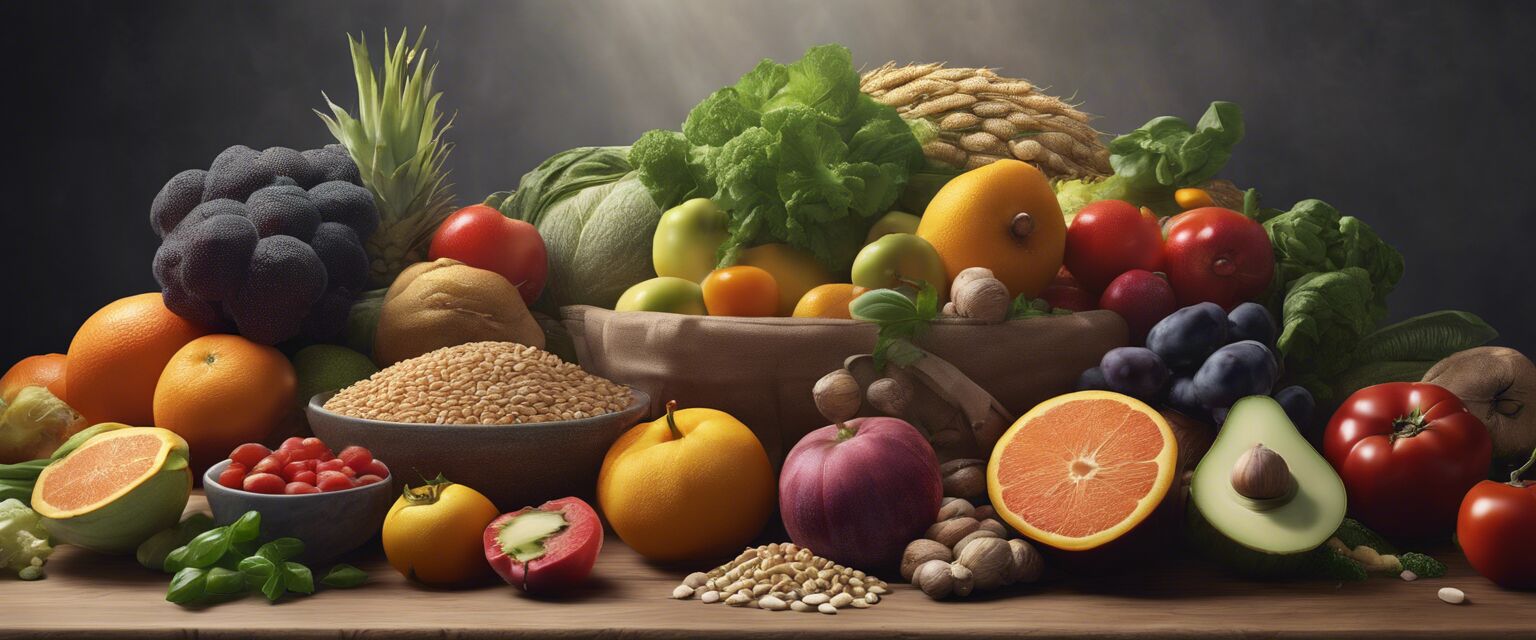
Anti-Aging Diet and Nutrition
- Focus on a diet rich in antioxidants, vitamins, and minerals.
- Incorporate healthy fats and high-quality proteins for skin nourishment.
- Stay hydrated and limit processed foods and sugars.
- Consider the importance of meal timing and balance.
The quest for youthful skin goes beyond topical applications. An anti-aging diet provides essential nutrients that support skin health from the inside out. This article outlines dietary choices and practices that can help you maintain a youthful appearance and overall well-being.
Understanding the Basics of an Anti-Aging Diet
A well-balanced diet plays a vital role in the aging process. The right foods can help combat oxidative stress, promote cell regeneration, and maintain skin elasticity.
Key Nutrients for Anti-Aging
| Nutrient | Sources | Benefits |
|---|---|---|
| Antioxidants | Berries, nuts, vegetables | Help combat free radicals. |
| Omega-3 Fatty Acids | Salmon, flaxseeds, walnuts | Support skin health and reduce inflammation. |
| Vitamins A, C, and E | Citrus fruits, carrots, almonds | Promote collagen production and skin repair. |
| Protein | Lean meats, beans, legumes | Essential for tissue repair and regeneration. |
Foods to Include in Your Anti-Aging Diet
Hereâs a list of some of the best foods that should be part of your anti-aging nutrition plan:
- Berries: Blueberries, strawberries, and raspberries are packed with antioxidants.
- Leafy Greens: Spinach, kale, and Swiss chard provide vitamins and minerals.
- Fatty Fish: Salmon and mackerel are excellent sources of Omega-3 fatty acids.
- Nuts and Seeds: Almonds, walnuts, and flaxseeds help in maintaining healthy skin.
- Whole Grains: Brown rice and quinoa provide energy and fiber.
Hydration: The Key to Youthful Skin
Staying hydrated is crucial for maintaining skin elasticity and preventing dryness. Make water your primary beverage and aim for at least 8-10 glasses a day. Consider incorporating:
- Herbal teas
- Coconut water
- Fresh fruit-infused waters
Foods to Avoid for Best Results
Certain foods can accelerate aging and detract from your skin's appearance. It's advisable to limit:
- Sugary drinks and desserts
- Processed foods
- Excessive alcohol consumption
- High-sodium snacks
Meal Timing and Balance
Meal timing can also impact your metabolism and overall health. Aim for balanced meals containing protein, healthy fats, and fiber. Hereâs a sample daily meal plan:
| Meal | Example |
|---|---|
| Breakfast | Oatmeal topped with berries and nuts |
| Lunch | Grilled salmon salad with mixed greens |
| Snack | Greek yogurt with honey and seeds |
| Dinner | Quinoa bowl with vegetables and avocado |
Supplements for an Anti-Aging Boost
While a balanced diet is crucial, some may consider adding supplements to complement their nutrition. Always consult a healthcare professional before starting any new regimen. Common supplements include:
- Collagen: Supports skin elasticity.
- Vitamin D: Important for skin health.
- Fish Oil: Provides an additional source of Omega-3 fatty acids.
Key Lifestyle Factors
Diet is not the only factor influencing skin aging. Consider the following lifestyle tips:
Tips for Beginners
- Start your day with a healthy breakfast.
- Plan meals ahead to avoid fast-food temptations.
- Incorporate physical activity into your daily routine.
- Avoid excessive sun exposure to protect your skin.
- Get sufficient sleep to promote overall health.
Conclusion: Embrace a Holistic Approach
Embracing an anti-aging diet is about more than just selecting specific foods. Itâs about creating a balanced lifestyle that promotes health and well-being. Remember that hydration, nutrition, and other lifestyle factors play a critical role in how your skin ages.
Pros
- Promotes healthy skin and overall well-being.
- Rich in nutrients beneficial for skin vitality.
- Encourages healthy eating habits.
Cons
- Requires a thoughtful approach to meal planning.
- May take time to see visible results.
- Potential costs associated with organic or specialty foods.
Further Reading
For more information on skin care and related topics, check out our other articles:

